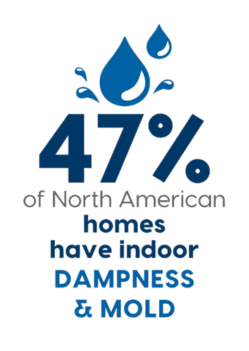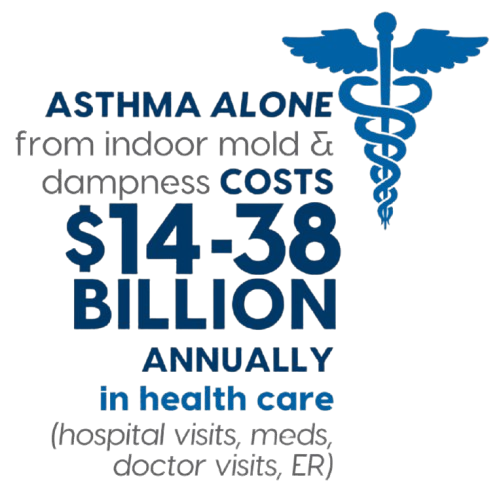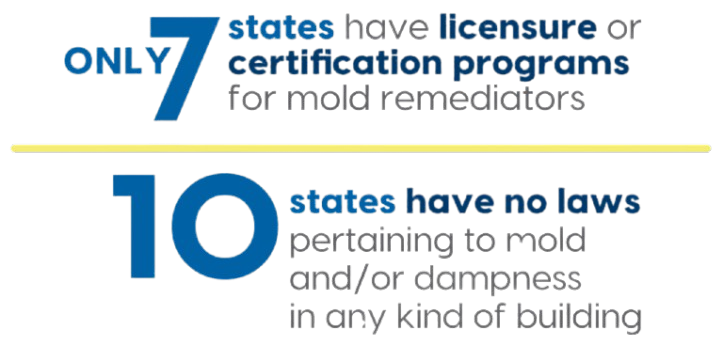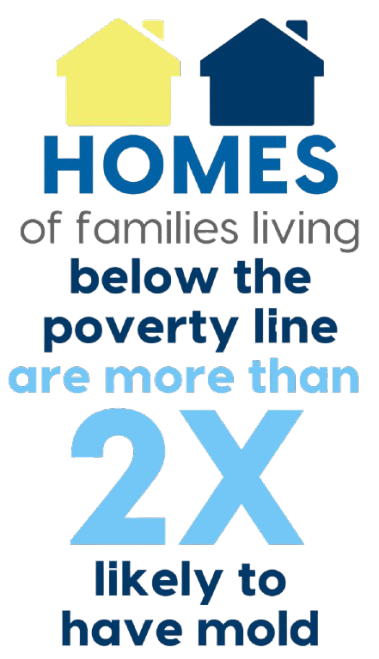policy brief
Mold isn’t just an inconvenience—it poses a serious health threat to tens of millions of Americans. It’s been linked to conditions such as asthma, autoimmune diseases, chronic fatigue, cancer, Alzheimer’s, immunosuppression and even death. The good news? We can take action.
Our Policy Brief “Promoting Policy Solutions for Household Dampness and Mold: Strategies for Protecting Our Health,” provides actionable steps that public health experts, researchers, and policy makers can take today to end this crisis.
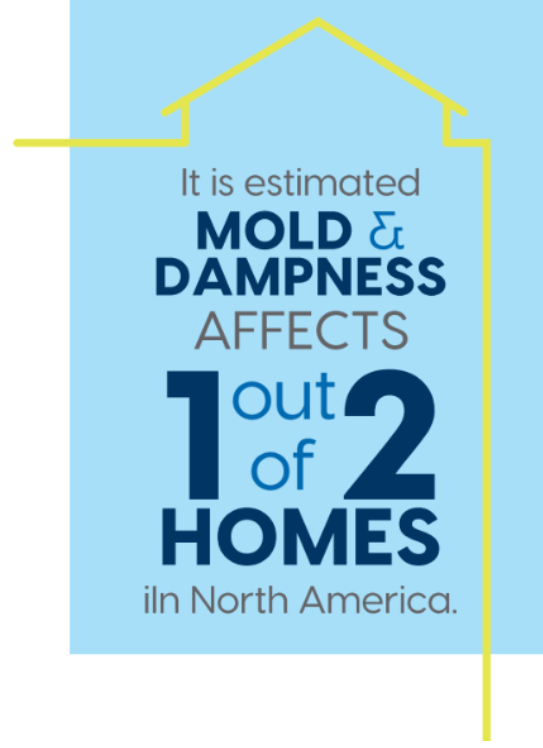
Promoting Policy Solutions for Household Dampness and Mold:
Strategies for Promoting our Health
KEY TAKEAWAYS
Health problems associated with mold exposure (to name a few):
- Asthma
- Autoimmune diseases
- Birth defects
- Skin rashes
- Cancer
- Alzheimer’s
- Premature puberty
- Liver & Kidney disease
- Nausea
- Respiratory and eye irritation
- Non-respiratory issues, including carcinogenic & neurological effects
- Immunosuppression
- Lung inflammation
- ADHD
- Fatigue
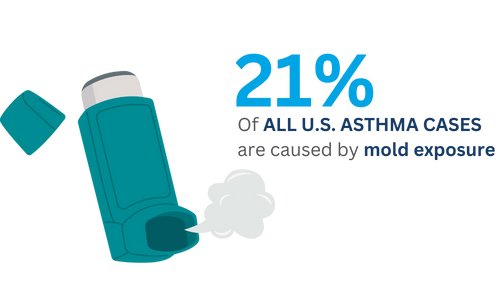
Get the Facts. Learn More About How Mold and Indoor Dampness are Negatively Affecting our Health and What We Can Do About It.
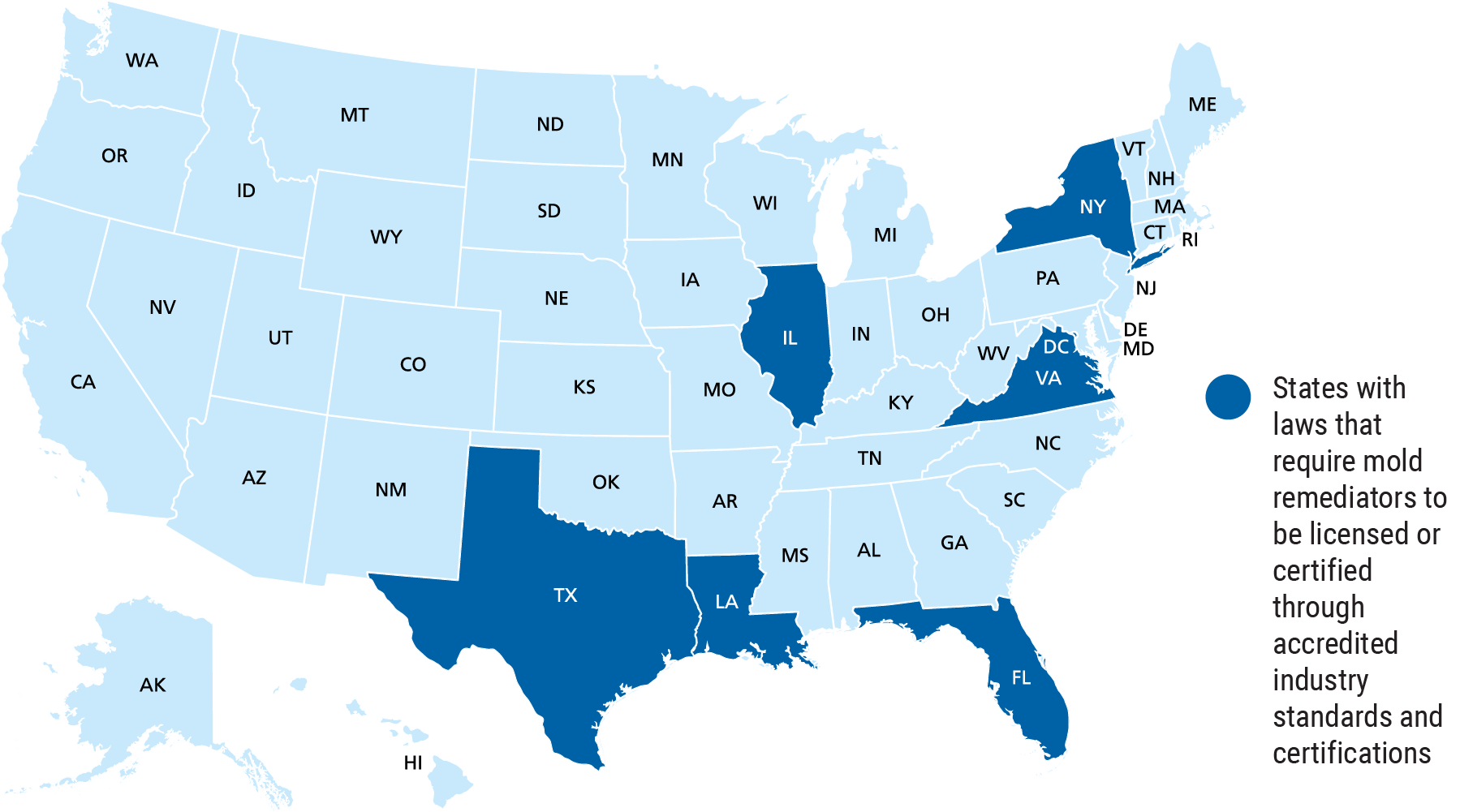
Learn More About Policy Work
The Foundation would like to extend our deepest gratitude to Ronald and Frieda Bourne, Clay and Kimberly Shaw, the Peter and Candis Doerken Foundation, and to all of our donors for their generous support in funding this Policy Brief. Your unwavering commitment to improving public health has made this important work possible.

